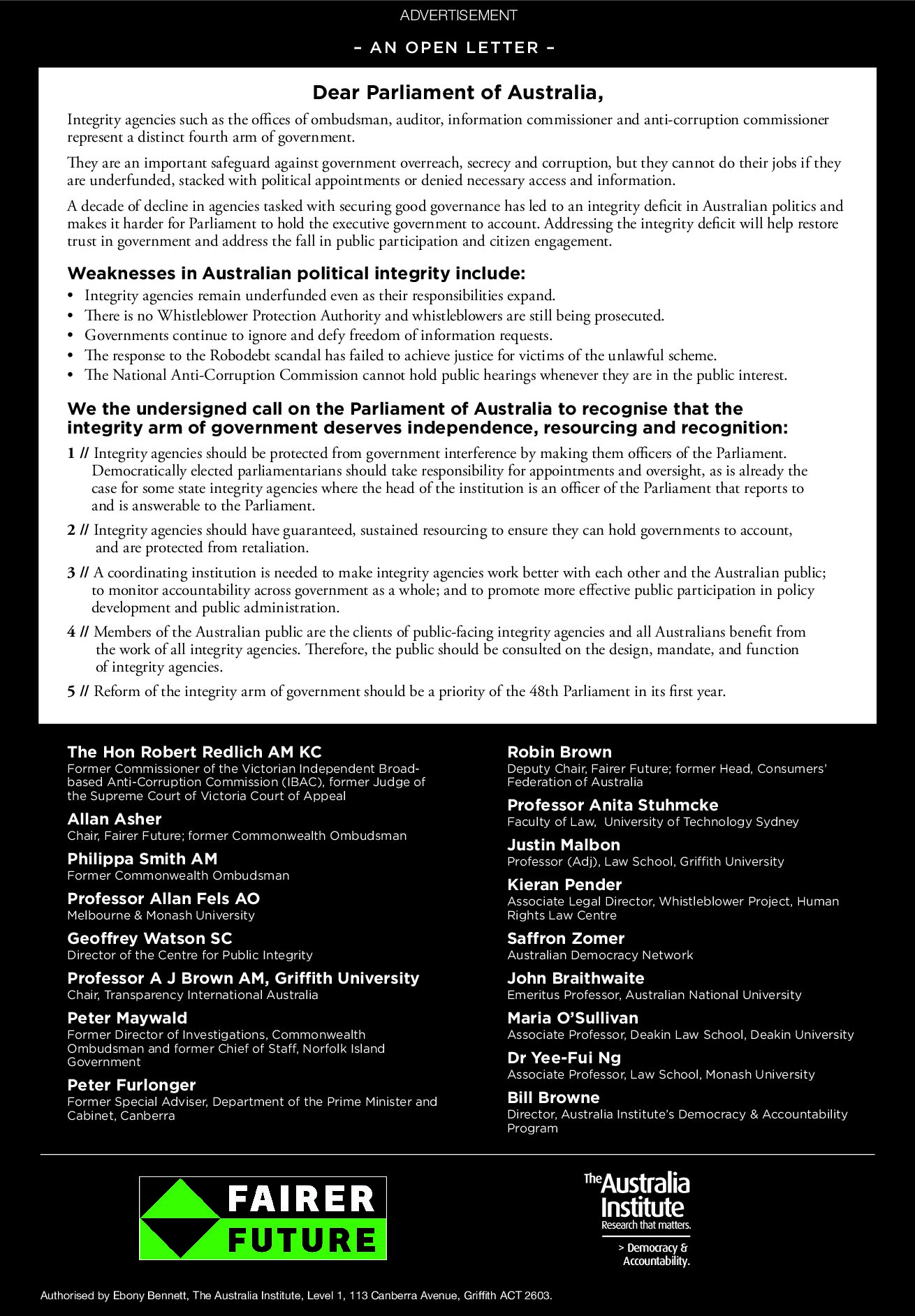When is a cabinet not a cabinet?
National Cabinet was created during the pandemic to make big decisions at a fast pace, but how much do Australians know about the advice on lockdowns or hotel quarantine, or about its deliberations and decisions? Not much, it’s pretty much a black hole. But a court case could change that. In this episode we dive into the importance of transparency and accountability to a healthy democracy – especially during a global pandemic.
Host: Ebony Bennett, Deputy Director at the Australia Institute // @ebony_bennett
Guest:
Bill Browne // @browne90
The Australia Institute // @theausinstitute
Website:
australiainstitute.org.au
Producer: Jennifer Macey //@jennifermacey with help from Jessie Sharp
Theme Music: Pulse and Thrum; additional music by Blue Dot Sessions
Between the Lines Newsletter
The biggest stories and the best analysis from the team at the Australia Institute, delivered to your inbox every fortnight.
You might also like
Open letter calls on newly elected Parliament to introduce Whistleblower Protection Authority, sustained funding for integrity agencies to protect from government pressure.
Integrity experts, including former judges, ombudsmen and leading academics, have signed an open letter, coordinated by The Australia Institute and Fairer Future and published today in The Canberra Times, calling on the newly elected Parliament of Australia to address weaknesses in Australian political integrity. The open letter warns that a decade of decline in agencies
Government’s FOI changes could cover up the next Robodebt – new research
Proposed changes to Australia’s Freedom of Information (FOI) laws would make a repeat of the disastrous Robodebt coverup more likely, rather than less, according to new research by The Australia Institute.
Integrity 2.0 – whatever happened to the fourth arm of government?
Prime Minister Anthony Albanese came to office in 2022 promising a new era of integrity in government.





